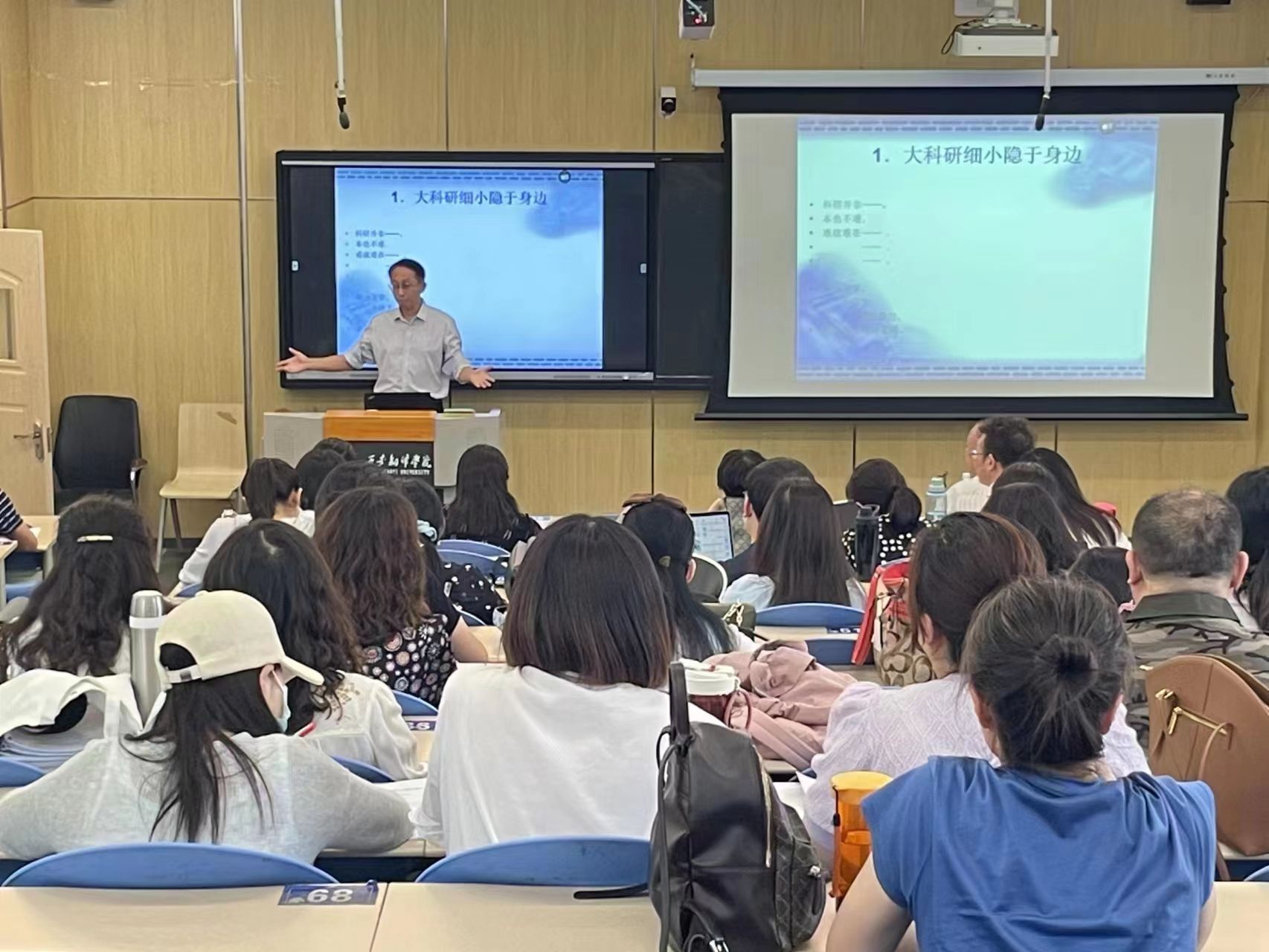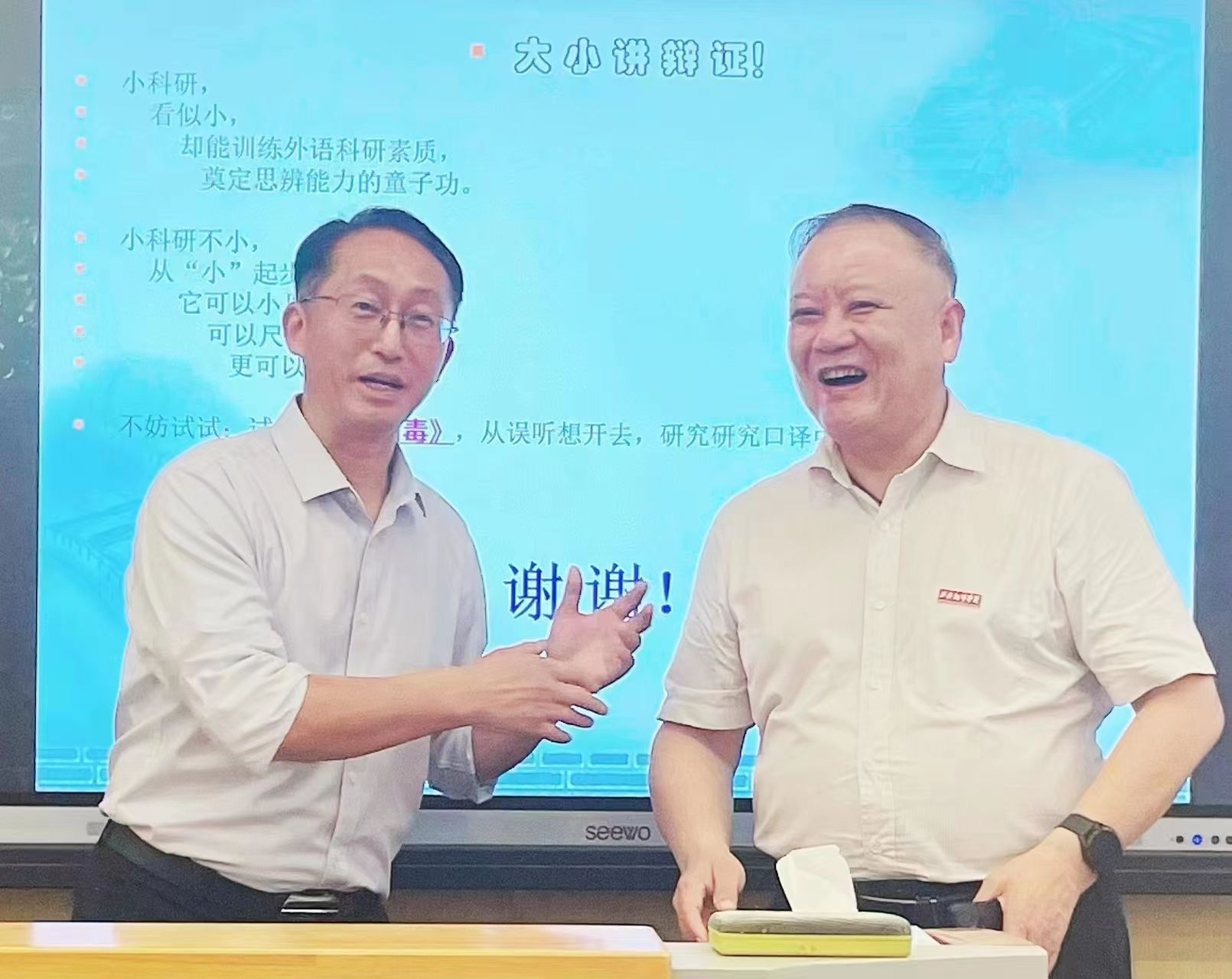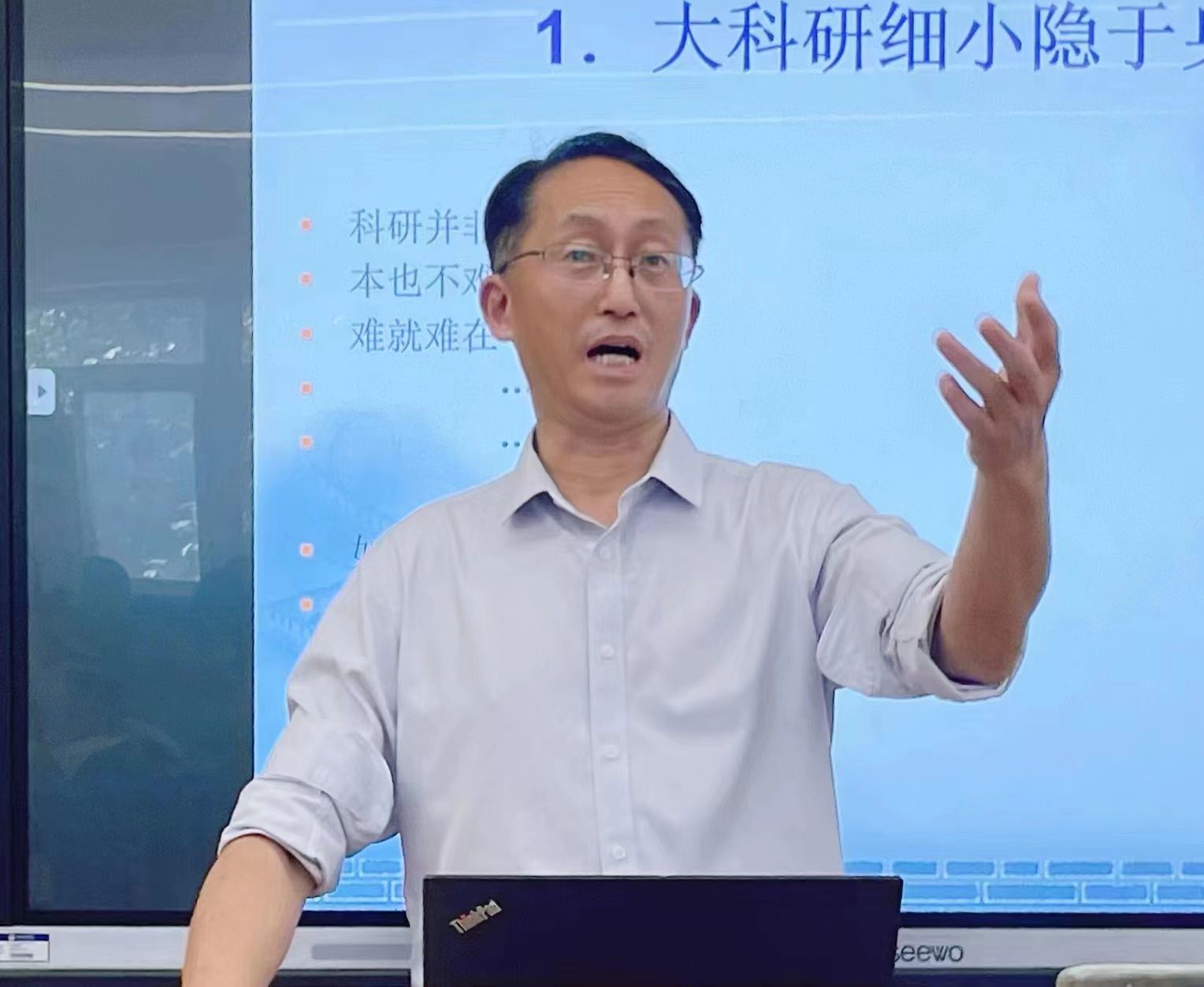On May 19, 2023, the 21st lecture of “Zhongnan Culture Translation Forum” Lecture Series was held in Classroom 4220T on the west campus of Xi’an Fanyi University. The School of English Language & Culture and the School of Translation Studies invited Professor Huang Zhonglian, a doctoral advisor and post-doctoral co-advisor from Guangdong University of Foreign Studies, to give an academic lecture entitled “How to Grasp the Scientific Research Around You” for teachers from the two schools. Yuan Xiaolu, dean of the School of English Language & Culture and the School of Translation Studies, presided over the lecture, and nearly a hundred teachers from the two schools participated in the lecture.
At the beginning of the lecture, Yuan Xiaolu introduced Professor Huang Zhonglian to the teachers, and hoped that this lecture would play a role in promoting the academic research work of the two schools, so as to further help to create a strong academic research environment, improve the academic research ability of teachers, and promote the scientific research of the schools to a new level.
Professor Huang Zhonglian guided the teachers in finding scientific research topics from small objects and small details in life from three aspects: “Scientific research is hidden in small details around you.” “Scientific research around you reveals great ability.” “Scientific research expands from the side to the horizon”. Professor Huang provided examples of “playing football”, “fire hydrants”, “three-child policy”, advertising slogans and Internet songs, which we can see everywhere “down-to-earth”, to illustrate valuable research topics that can rise to the level of society and even the national level. Teachers were encouraged with national social science research topics that had been accepted. As long as you observed carefully, you would find that there were topics in life and study everywhere. So you must be good at discovering and perceiving things to “discover problems, analyze problems and solve problems”.
Professor Huang encouraged the young and middle-aged teachers of the two schools to pay attention to “two newspapers and one TV station”, that is, Global Times, Reference News and CCTV, and to watch programs including XINWEN LIANBO and Focus Interview. As long as we observe carefully, we can find research topics in space exploration, medical and health care, family health care, life science, energy science, earth science and environmental science.
Professor Huang also combined historical facts such as “the origin and development of ‘foreign language’ in China” and “the evolution of ‘foreign language’ and related words”. Taking foreign language research as the object and starting from the five aspects of sufficient observation, description, analysis, solution and explanation of novels, examples or examples of foreign language research as the starting point, he illustrated the process of how to choose a topic and how to determine a topic in detail through successful cases in various research areas. He also explains the significant differences between small articles and large papers. In the lecture, Professor Huang sang the folk song “Six Mouth Tea” in western Hubei impromptu, and took this as an example to cultivate many research topics concerning the context and tone of the lyrics. The audience burst into warm applause.
The lecture lasted for nearly two and a half hours, and the teachers gained a lot from it. In the Q&A and communication session, Professor Huang gave detailed answers to the questions raised by the teachers present. Finally, Dean Yuan Xiaolu expressed his heartfelt thanks to Professor Huang for his wonderful academic sharing, and made a concluding speech on this lecture. This lecture will help teachers from the School of English Language & Culture and the the School of Translation Studies do better in scientific research and discipline construction. It further strengthens the academic atmosphere, and it is hoped that the majority of backbone teachers would continue to contribute to the development of English-related disciplines and scientific researches in the future.
The lecture came to a successful conclusion.
About the Lecturer:
Huang Zhonglian holds a Ph.D. and is second-level professor, doctoral advisor and post-doctoral co-supervisor of Guangdong University of Foreign Studies. He specializes in translation variation theory, scientific translation studies, applied translation studies, theoretical translation studies, translation history, Chinese-language translation, Chinese-foreign comparison, etc. He also worked as the chief expert of the National Social Science Fund of China “Research on the Development History of Chinese Translation Theory”, presided over 6 national social science projects (1 major project, 1 key project, 4 general projects) and 7 ministerial-level projects, and published 33 academic translations. Professor Huang is an editor-in-chief of 7 series of books including Translation Studies Library published by The Commercial Press and Contemporary Translation Studies Library published by Science Press, and published 360 academic papers. He was awarded State Council Special Allowance Expert, a member of the 7th Disciplinary Evaluation Group of the State Council, and a member of the National Social Science Fund Discipline Evaluation Group. Huang Zhonglian is a distinguished professor among “Pearl River Scholars” of Guangdong Province, deputy director of the Translation Discipline Committee of China Association for Comparative Studies of English and Chinese, and the founder of “Global Russian-Chinese Mutual Translation Competition”. He won the the 6th Humanities and Social Sciences Awards of the Ministry of Education.


